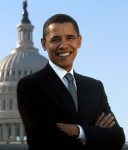ICC Oversteps Authority
Posted in Politics on July 13th, 2008The International Criminal Court (ICC) has once again attempted to overstep its authority by involving itself in matters which are outside of its jurisdiction. On Monday 14 July, ICC Prosecutor Luis Moreno-Ocampo will submit to the Judges of Pre-Trial Chamber I his evidence on crimes committed in the whole of Darfur over the last five years. Specifically he is requesting an arrest warrant for Sudanese President Omar Hassan al-Bashir on the charges of genocide and crimes against humanity for the systematic killings in Sudan’s western Darfur region since 2003.
At first read this seems to be a fine idea. It isn’t.
The The International Criminal Court derives its powers from the Rome Statute signed into treaty on 17 July 1998 and entered into force on July 1, 2002. The Rome Statute is an international treaty which specifically grants the ICC jurisdiction in only in those States which formally expressed their consent to be bound by its provisions. These States voluntarily became “Parties” to the Statute. The 106 Nations who are currently States Parties to the Rome Statute do not include Sudan! The ICC has absolutely no jurisdiction over the Sudanese or their President Omar Hassan al-Bashir.
As bad as the situation is in Sudan, especially the Darfur region, I believe it is an even worse situation in the long run for an international body such as the ICC to be gratuitously overstepping its authority and ignoring the dictates and limitations of the treaty that created it and empowered its actions.
I’m fairly sure that the apologetics used to rationalize the ICC’s frankly extra-legal endeavors are that what is happening in the Darfur region of Sudan is an ongoing parade of atrocities, many – possibly most – of them committed systematically at the bequest of al-Bashir’s government. That’s fine and emotionally satisfying, but if one condones such actions by the ICC, then one must also condone the actions of Israel, the US, China, Russia, and any other nation that steps outside of international law and treaties to “do what it deems is necessary” to end an atrocity or protect itself.
For what little it’s worth the Sudanese government has exhibited a fierce defiance of the ICC. They even threatened to try Moreno-Ocampo in a Sudanese court for “terrorism” after the ICC Prosecutor tried to apprehend and arrest Sudanese State Minister Ahmed Haroun, one of the Sudanese citizens facing a previous ICC warrant, as he was about to go on a trip to Saudi Arabia.
NOTE: I really hate feeling the need to make posts such as this one. On a personal level I’d happily sell my life to visit the same horrors upon the Sudanese government and their forces that they’ve visited on the people of Darfur. One has to look beyond that though and see the ramifications the actions taken to redress these issues.
Thank you ever so much, Prosecutor Luis Moreno-Ocampo, for forcing me to side with al-Bashir and his ilk on anything! May the Gods create a special Hell for you rot within for eternity.
 On Wednesday, July 2, 2008, the Democratic Presumptive Presidential Nominee Sen. Barack Obama, in his speech at the University of Colorado on national service, promised that, if elected as president of the United States of America he would “set a goal for all American middle and high school students to perform 50 hours of service a year, and for all college students to perform 100 hours of service a year.”
On Wednesday, July 2, 2008, the Democratic Presumptive Presidential Nominee Sen. Barack Obama, in his speech at the University of Colorado on national service, promised that, if elected as president of the United States of America he would “set a goal for all American middle and high school students to perform 50 hours of service a year, and for all college students to perform 100 hours of service a year.”
